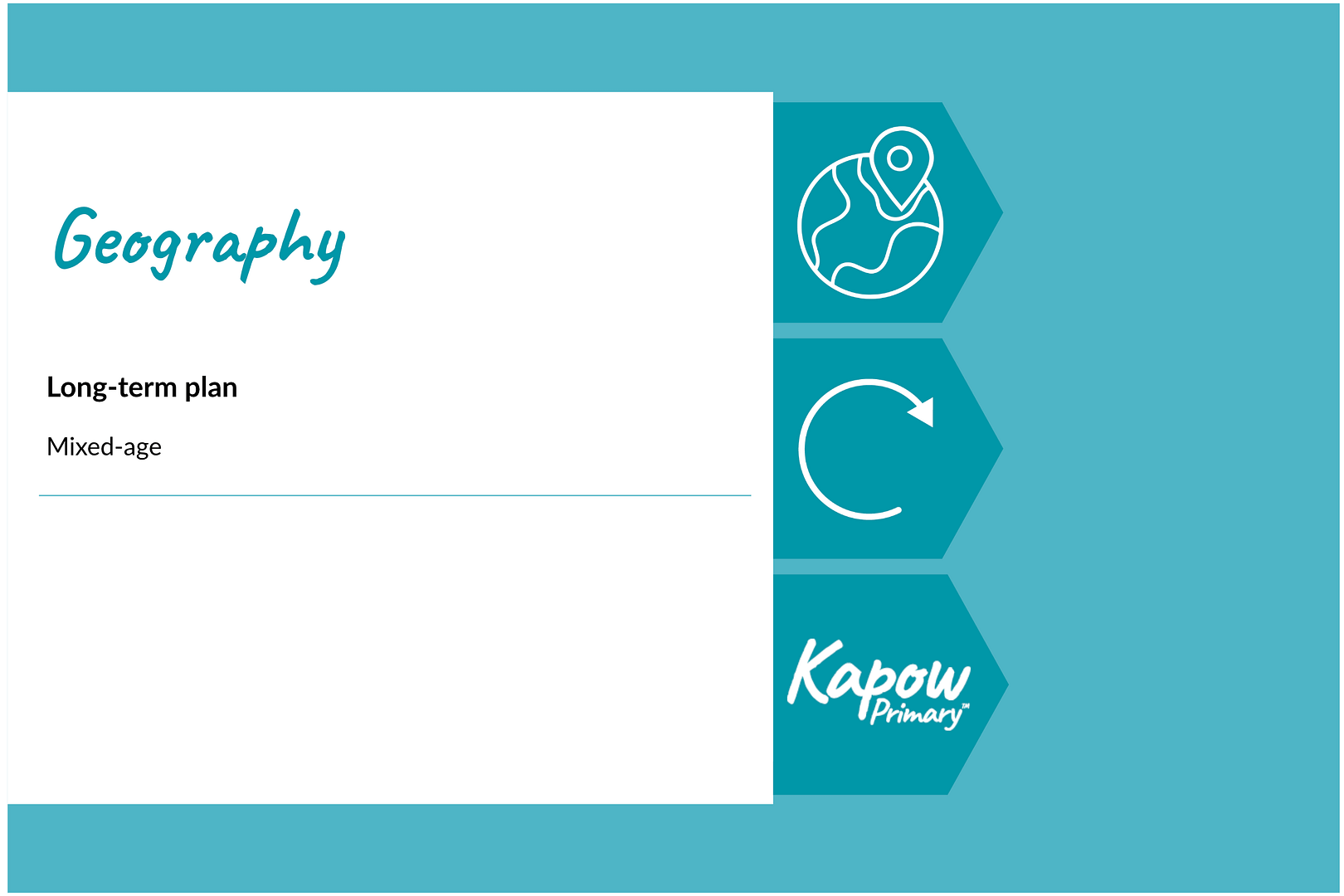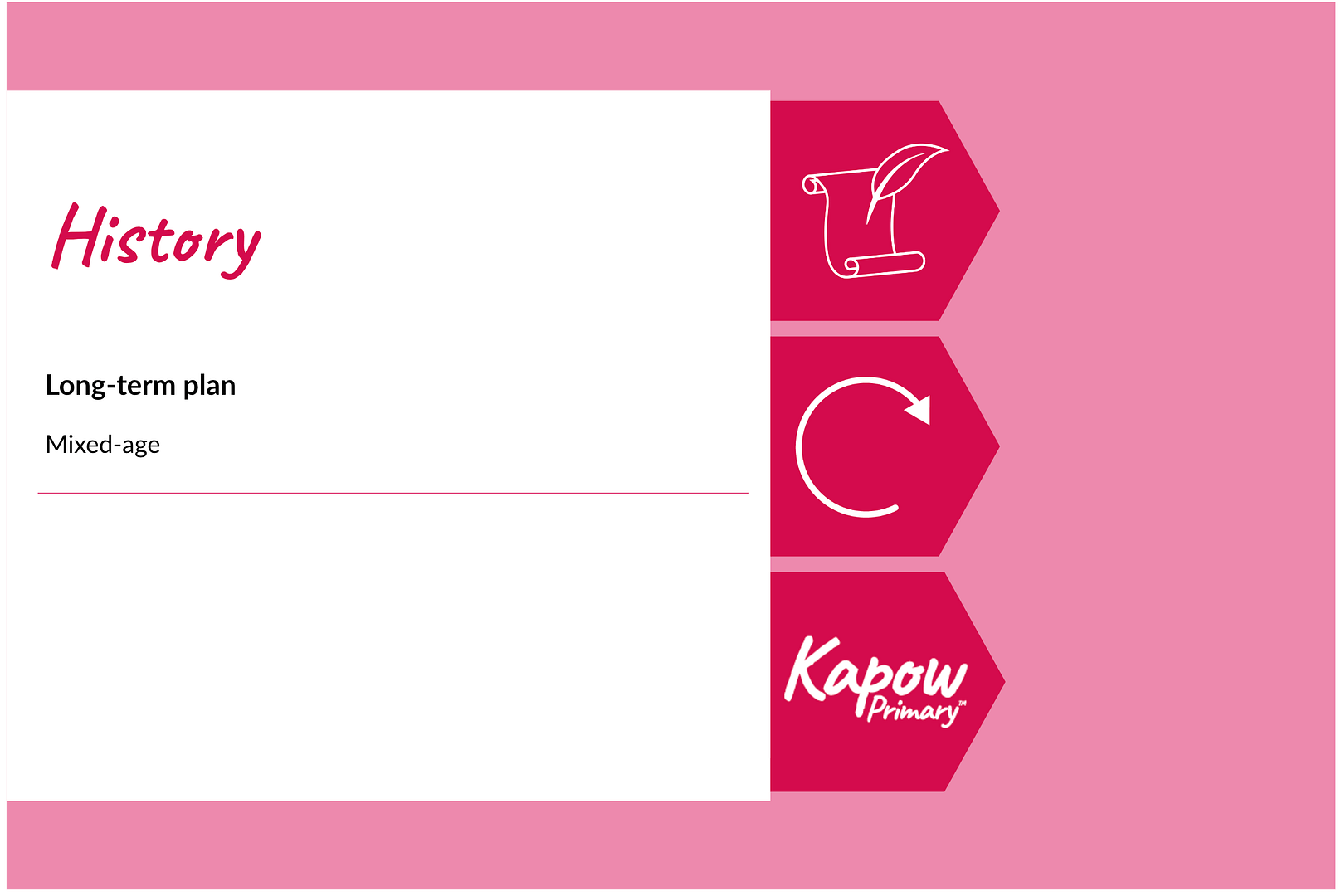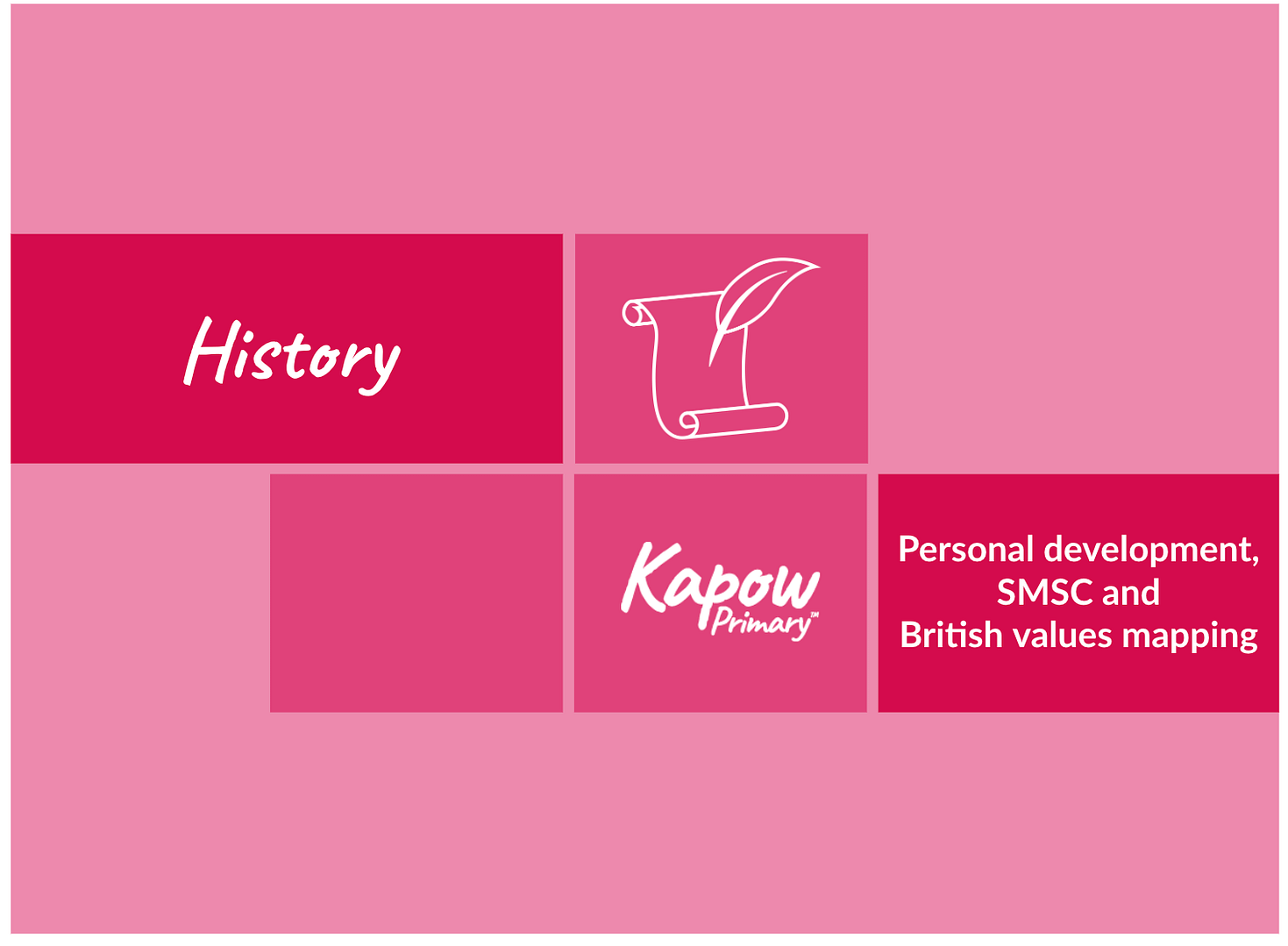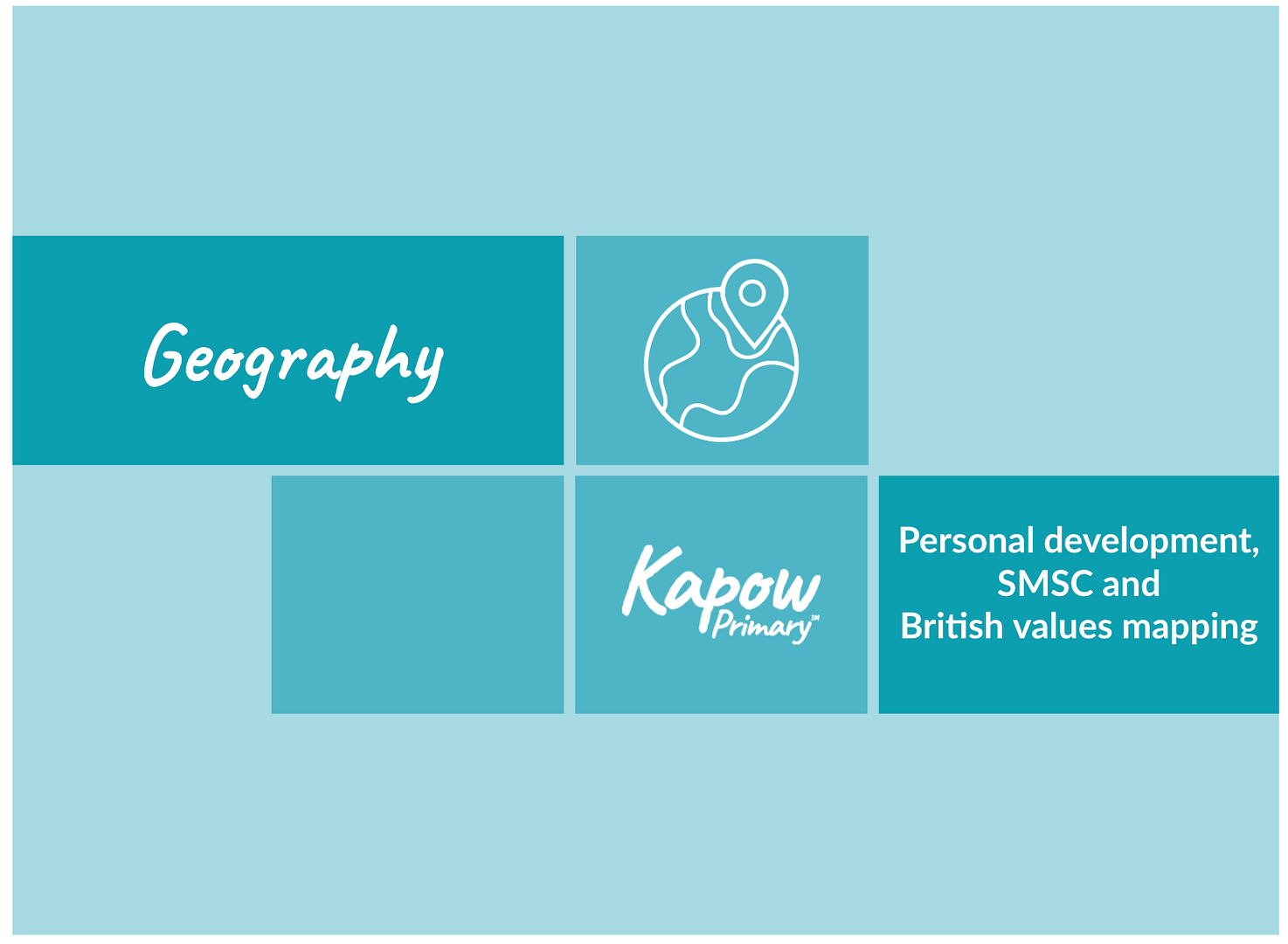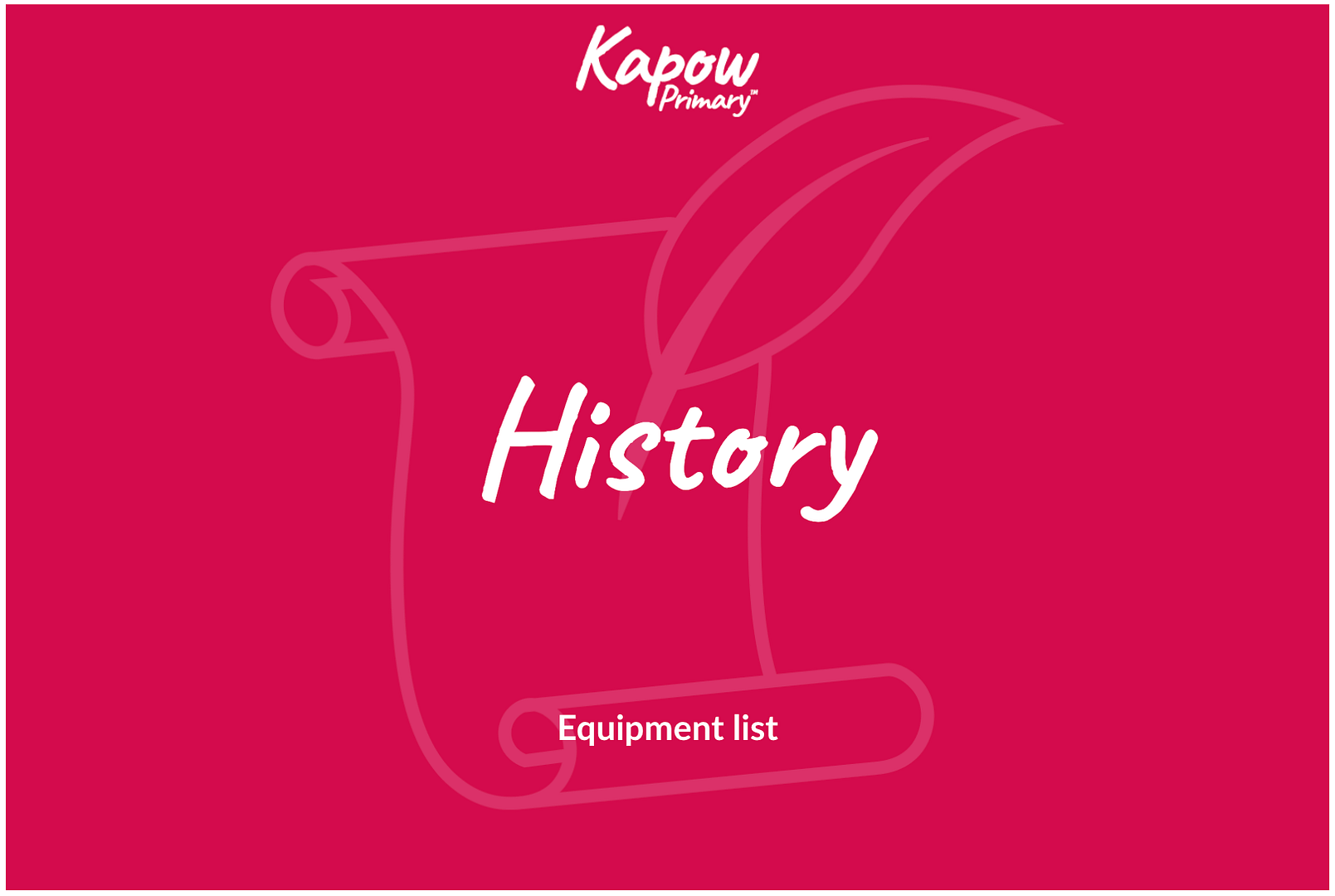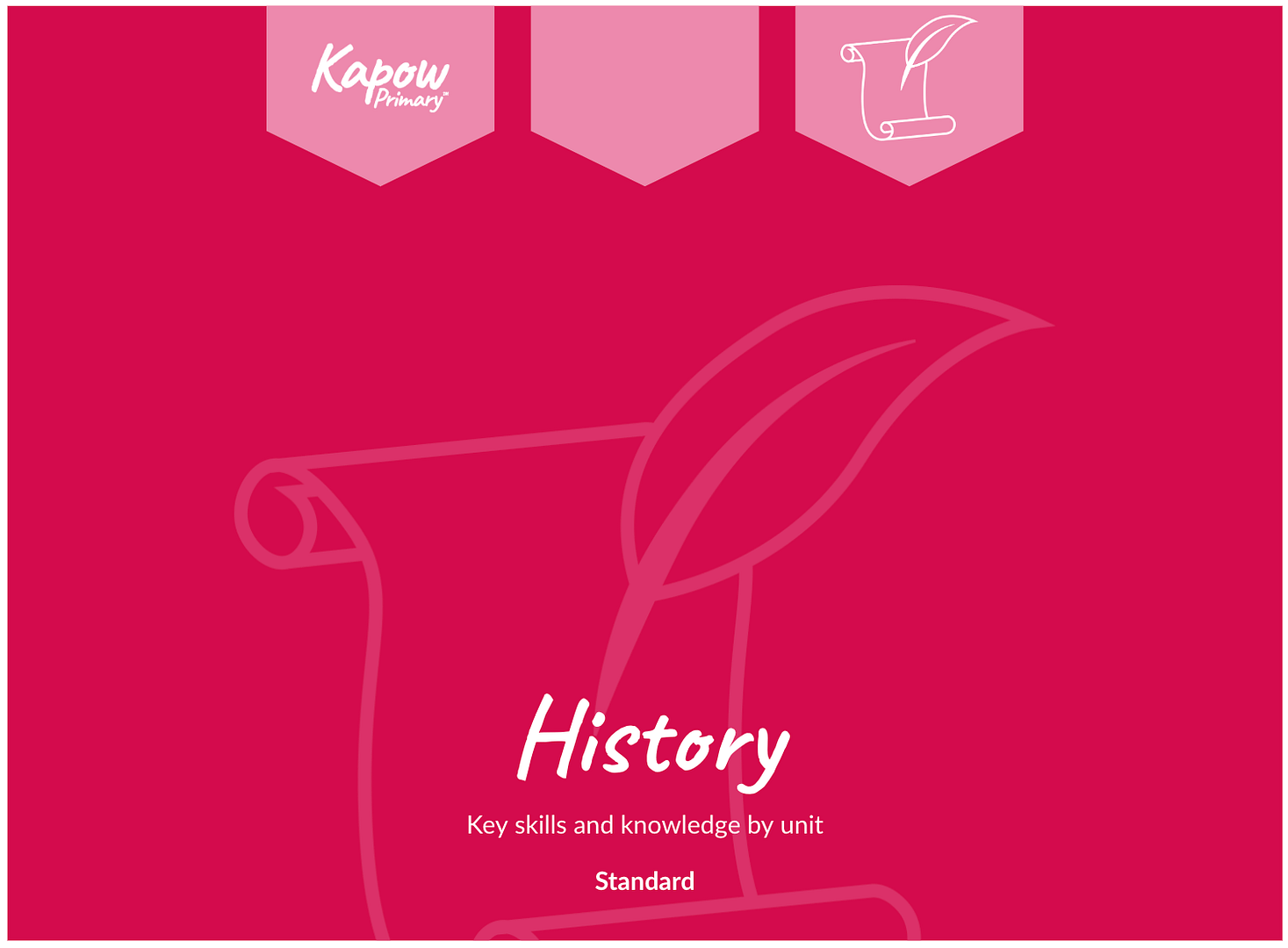
This downloadable document shows which key skills and knowledge statements are covered in each unit of the Kapow Primary History scheme of work.
It is invaluable if you wish to adapt our scheme of work to suit your school without adversely affecting progression.
For detailed information on our History curriculum, please visit our Kapow Primary History page.
To explore the curriculum for pupils, check out:
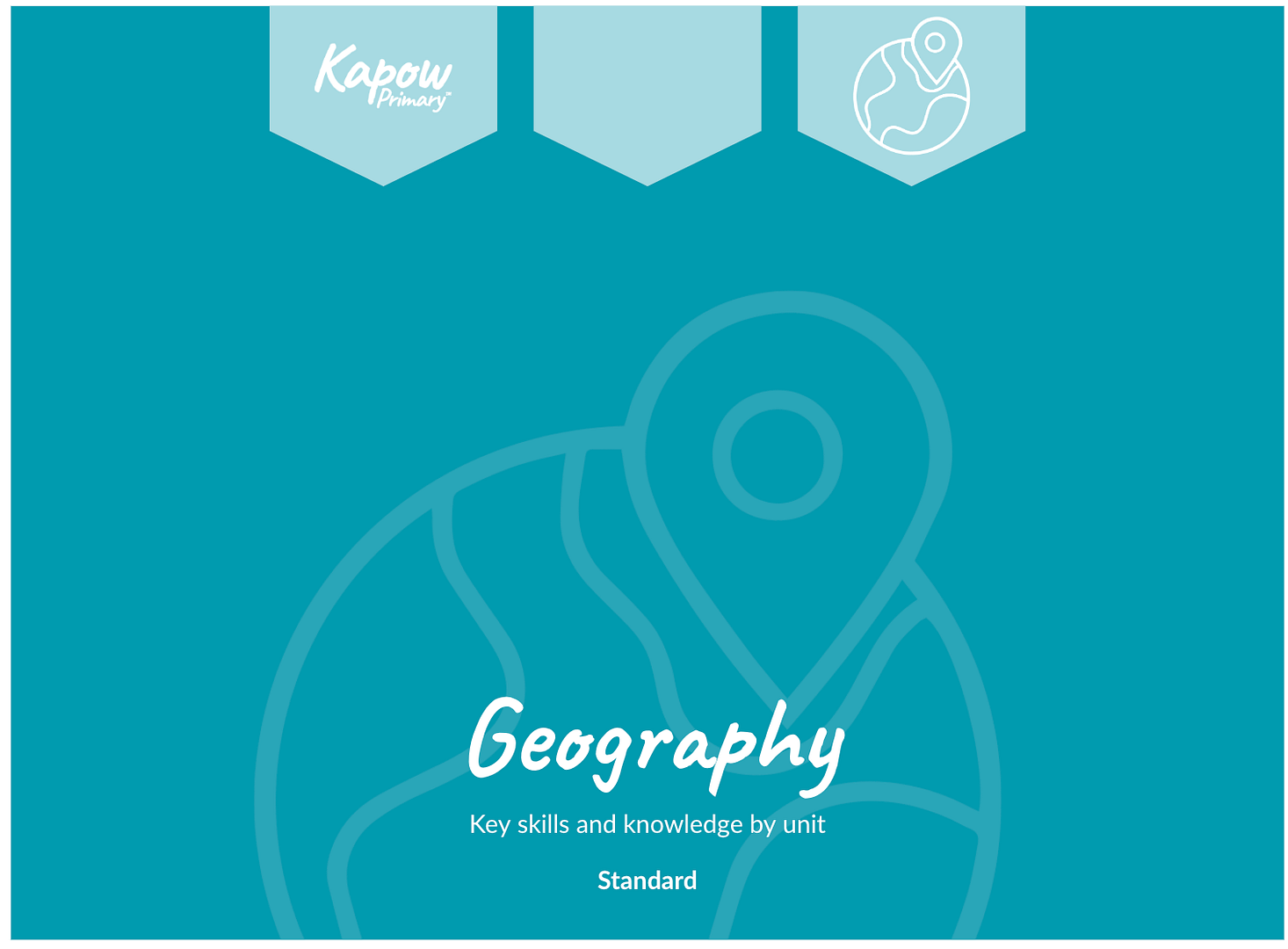
This document shows the key skills and knowledge covered in each unit of the Geography scheme of work covering:
This information is invaluable if you wish to adapt our scheme of work to suit your school without adversely affecting progression.
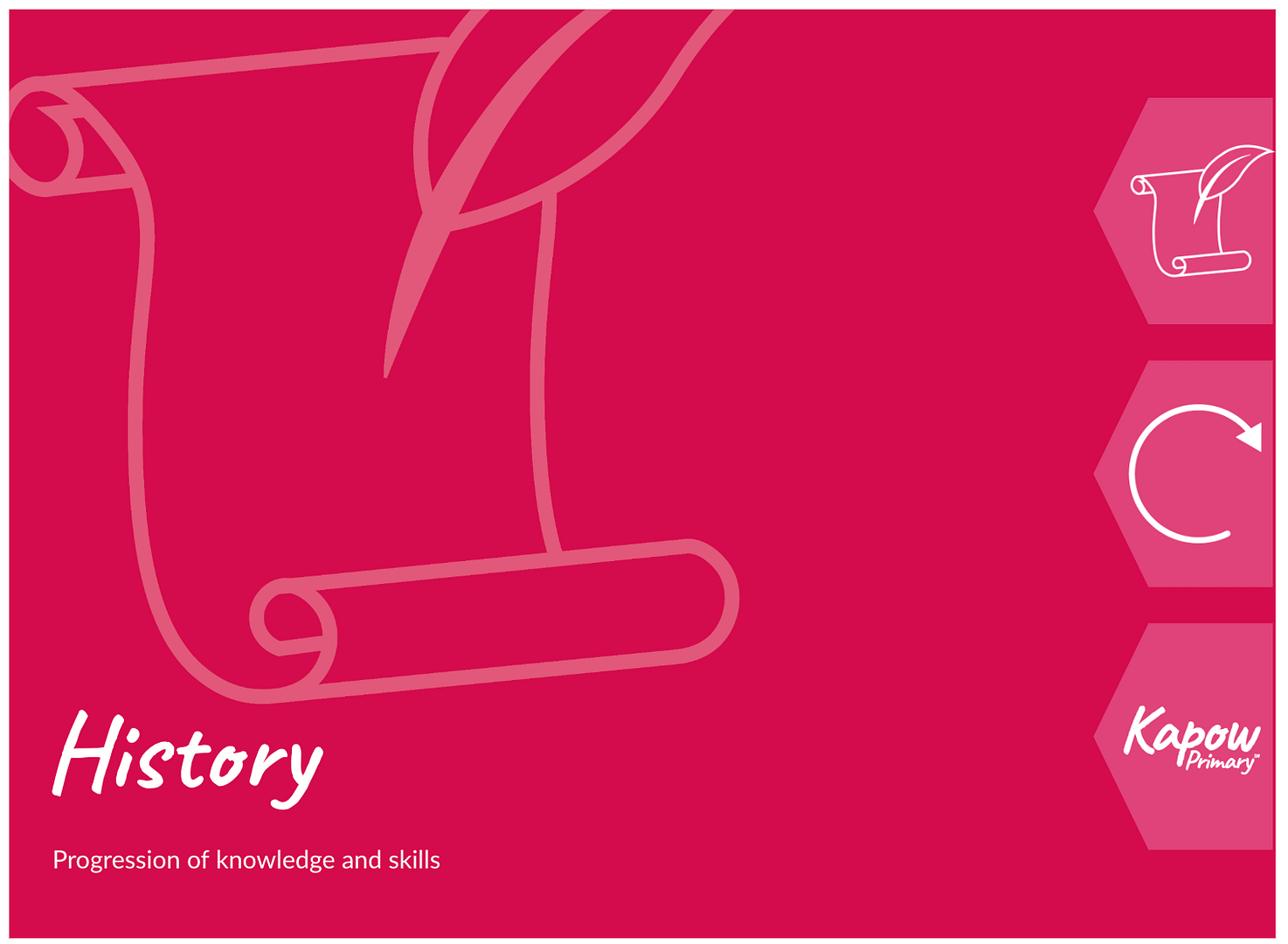
Aimed at the subject leader, this downloadable progression of skills and knowledge document shows how Kapow Primary’s mixed-age History scheme develops History skills and knowledge from Year 1/2 through to Year 5/6.
It shows the progression in skills from Year 1/2 to Year 5/6 for each of the following strands: Chronological awareness, Disciplinary concepts and Historical enquiry. Progression of knowledge statements are also included for the Substantive concepts strand.
Please visit our Kapow Primary History page for detailed information on our History curriculum.
To explore the curriculum for pupils, see:
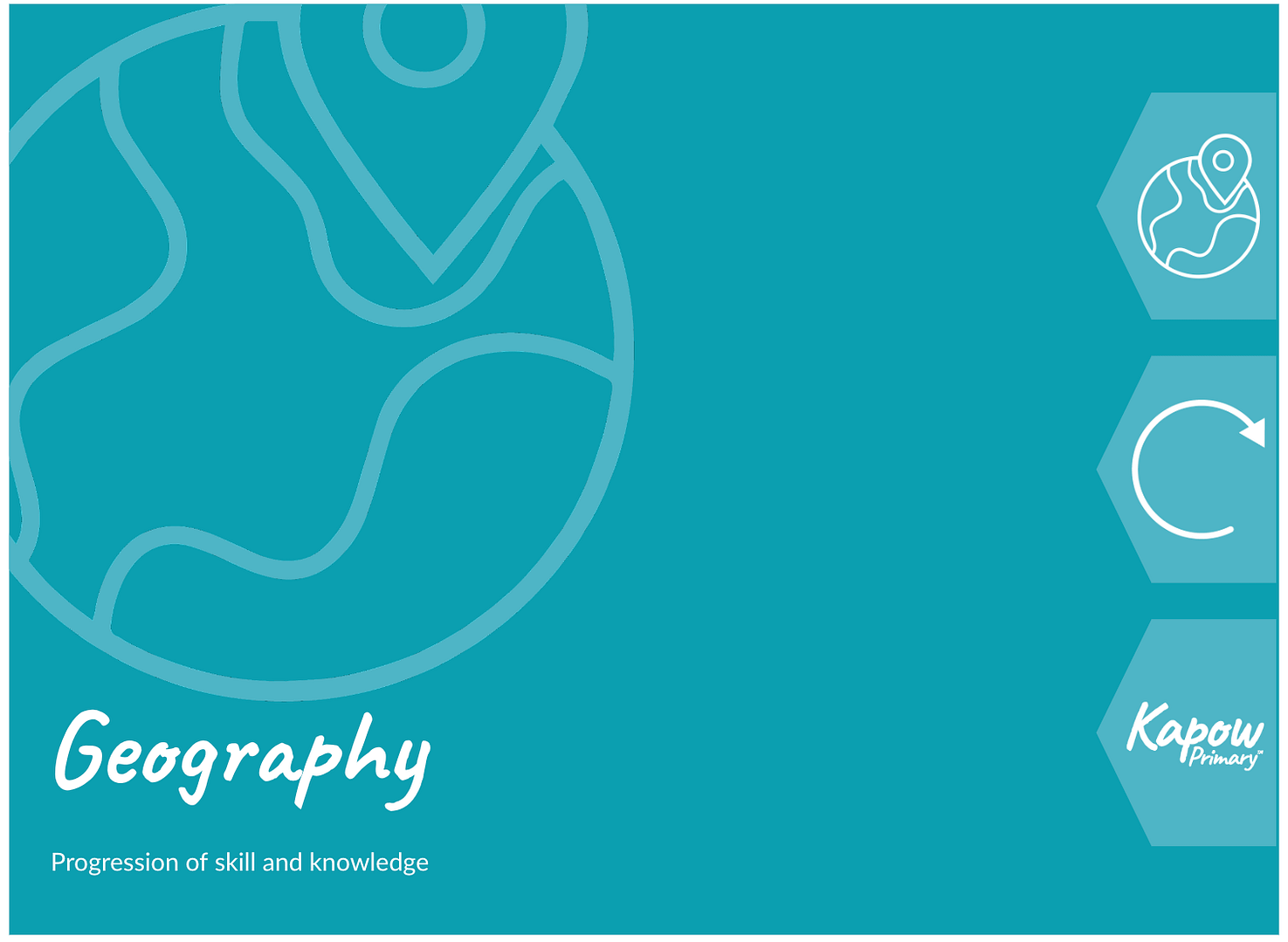
Aimed at the subject leader, this downloadable progression of skills and knowledge document shows how Kapow Primary’s mixed-age Geography scheme of work develops Geography skills from Year 1/2 through to Year 5/6.
It shows the progression in skills from Year 1/2 to Year 5/6 for each of the following strands: Locational knowledge, Place knowledge, Human and physical geography and Geographical skills and fieldwork.
Progression of knowledge statements are also included for the strands of Locational knowledge, Place knowledge and Human and physical geography.
There is an accompanying document which shows where each statement is covered within our Geography curriculum here: Geography: Key knowledge and skills by unit — mixed-age
For progression of knowledge and skills information, see the Geography subject leader hub.





